Why the Arrows jury chairs are aiming high
With the announcement today of the British Arrows 2020 shortlists, we speak to the two jury chairs, Matthew Fone and Hollie Walker, about their experiences in the hot seat and why the industry should be proud of the work it produces.
This year's British Arrows shortlist, in both the Craft and the Arrows categories, has been announced today, highlighting some of the best work to come out of the UK over the last 12 months.
In a year that has seen the political landscape of the UK create tensions that have impacted on the industry, we speak to the 2020 Arrows jury chairs, Hollie Walker, Creative Director at Wieden+Kennedy London, and Matthew Fone, the owner of Riff Raff Films, about their take on the year's creative output and about they approached their tenure.
What were your first thoughts when you were asked to be the jury chairs?
HW: Firstly, it was a real honour to be asked. I wasn't sure I was experienced enough to do it, but I’m so glad that I did. I’ve worked at Wieden+Kennedy for 10 years so it was a really good opportunity to meet a lot of other people who I don’t normally get to meet and see how they feel about the work. I think the Arrows is one of the most respected awards, so I was flattered, and couldn’t really say no!
It was a really good opportunity to meet a lot of other people who I don’t normally get to meet and see how they feel about the work.
MF: Yes, it is very flattering, though I was surprised actually, because a friend of mine said,“Oh, we were discussing who to ask and your name came up, but you’d never fucking do it, would you?” It was an honour to be asked and a privilege to be involved.
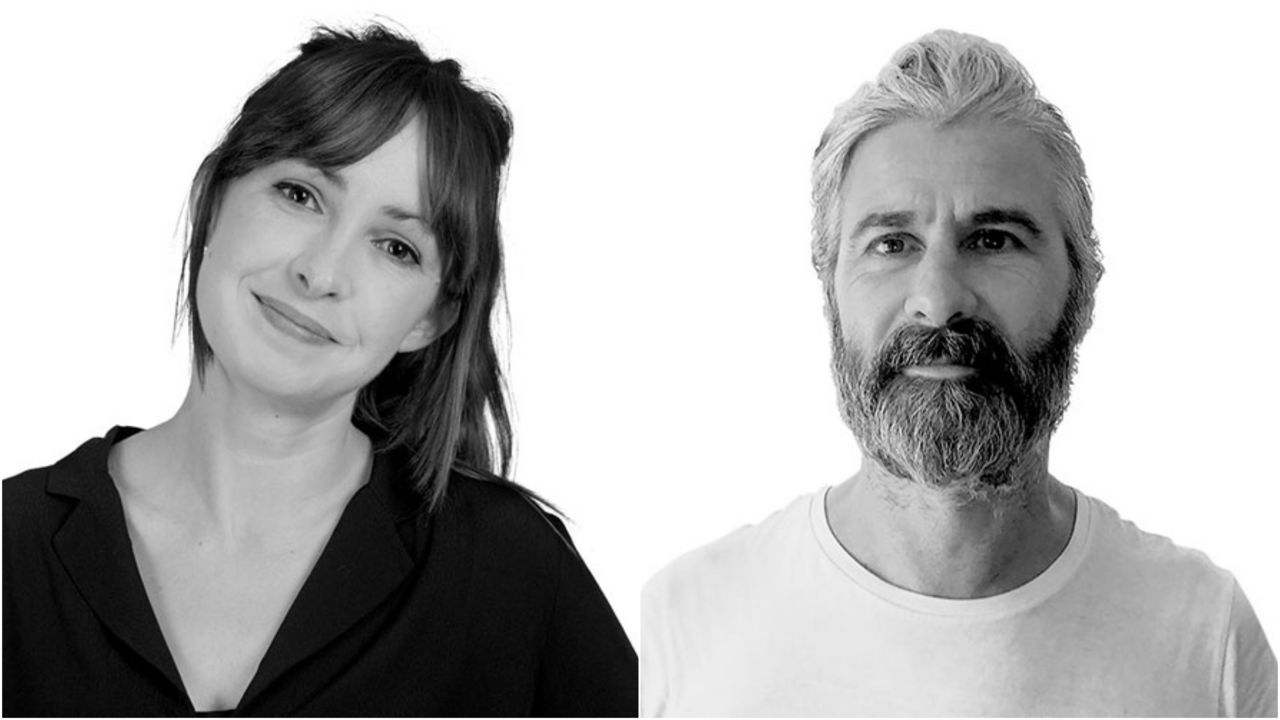
Above: Hollie Walker and Matthew Fone.
Did you get to choose all of the fellow jurors yourself?
HW: There were some people that the Arrows board members put forward as possible, and then, yes, we also suggested our own people.
MF: I suggested quite a lot of names because, when it comes to craft it was about who’s the best DoP? Who's the best production designer, the best director, or stylist or art director? People whose taste I trusted. I knew their timetables [were hectic] but I also knew the ones I wanted. And I knew I wanted a broad mix of people. I reckon the ratio was about 75% my choices, 25% [the board].
The main thing for me was trying to get a really good mix of people from clients, production and agencies, with some slightly younger creatives and new CDs too.
HW: I think it might have been more like 50/50 for me, but it was the same process. They had lots of amazing names but, again, because I’ve been at Wieden’s for so long, it was finding people from other agencies who I just haven’t met or didn’t know. The main thing for me was trying to get a really good mix of people from clients, production and agencies, with some slightly younger creatives and new CDs too.
Had you already decided how you wanted to approach the judging process before you started it?
MF: Because I knew everybody who was on my jury quite well - and if I didn’t, I got to know them – I just asked them, individually, when we’d finished looking at the work, what their opinion was. I just wanted to get an opinion from everyone to get a discussion going. That was one of my major things when I was picking people, just to know their personalities.
Everyone needs to feel part of a group because it’s their taste that’s judging these awards.
It’s a bit like a crew on a set, you know? When you pick your DoP you do so because of his reel, but it’s their personality as well because you want to know how they’re going to work with other people. Everyone needs to feel part of a group because it’s their taste that’s judging these awards.
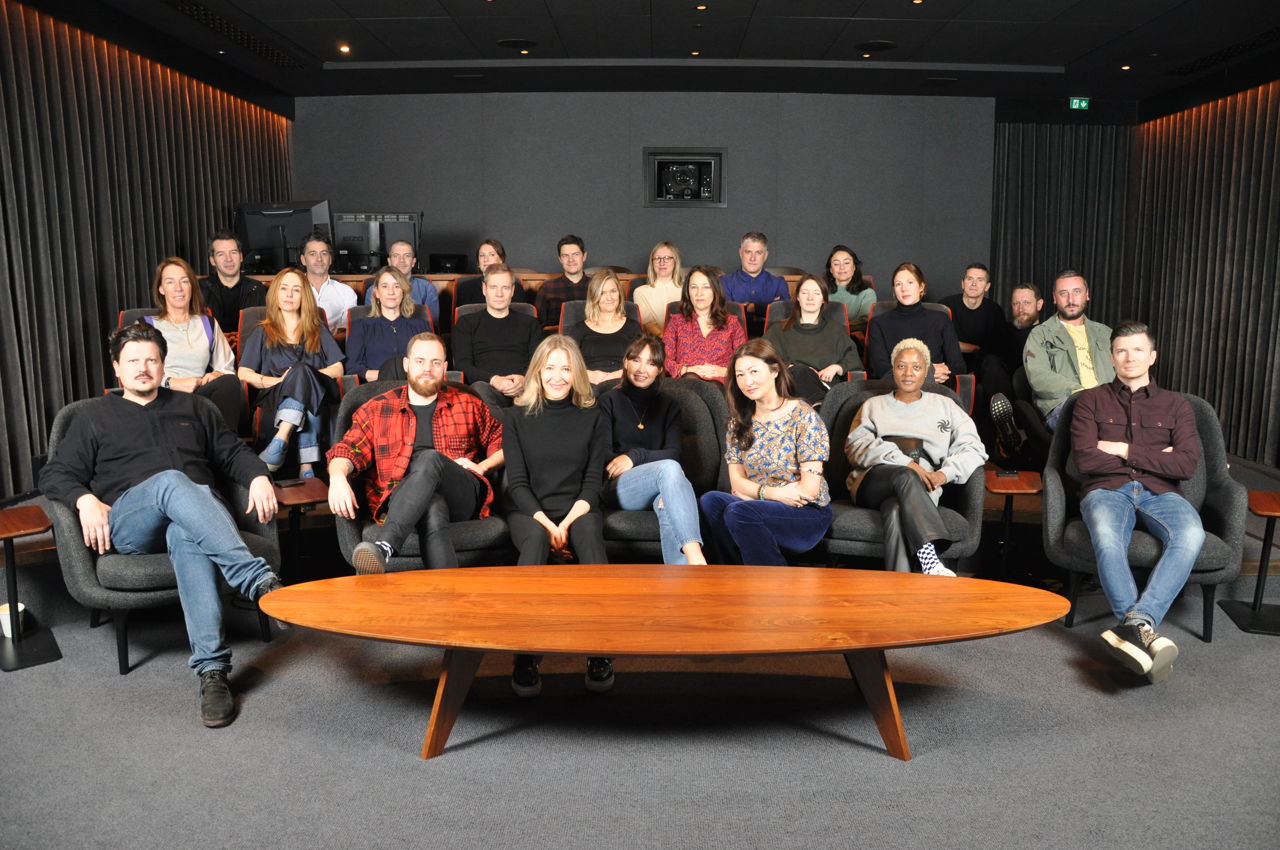
Above: The Arrows jury, chaired by Hollie Walker, front row centre, flanked by Janie Guest [right] and Claire Donald [left], the Arrows Board chairwomen.
The Craft jury is split into smaller, specific groups, whereas the Arrows jury is one big group; does that make the judging process more difficult to manage?
HW: It's a pretty big group of people, so it can take a little while for everyone to find their feet. But people did warm up pretty quickly and, by the third day, everyone was chipping in.
A lot of the chat was just around the positives and the things that people really loved, but then it would sometimes be the case that other people in the room would completely hate that same thing.
MF: I’ve been on an Arrows jury before and part of the problem is that you sometimes don’t get much time to talk. Time is very tight and the organisers are ‘right, let’s crack on’, and you’re like, ‘can’t we discuss it more?’ The discussion is a big part of it because you can change your mind by listening to other people’s opinion.
HW: There were big personalities in the room, as you would expect, and because of the format for judging [jurors aren’t aware of what has won bronze, silver or gold at any point] they obviously didn’t know what the numbers were like. Often it was pretty black and white [but when it wasn’t] you ended up having this conversation around what you thought the top five or eight might be, and then what you would potentially give gold, silver and bronze. A lot of the chat was just around the positives and the things that people really loved, but then it would sometimes be the case that other people in the room would completely hate that same thing.
The way I approached ours was that I asked the specialists in the room, going, ‘Okay, Nanu [Segal], you’re a DoP; before we even watch this, what do you look for? What goes through your mind?’
MF: The Arrows is different to the Craft in terms of the judging process, because the Arrows, I feel, it's is a bit more subjective. The way I approached ours was that I asked the specialists in the room, saying, ‘Okay, Nanu [Segal], you’re a DoP; before we even watch this, what do you look for? What goes through your mind?’ And we just had a little chat about that. So, everybody in the room had the base opinion from an expert.
HW: I think it’s good to have a real mixture of people in the room because it does sort of balance everything up.
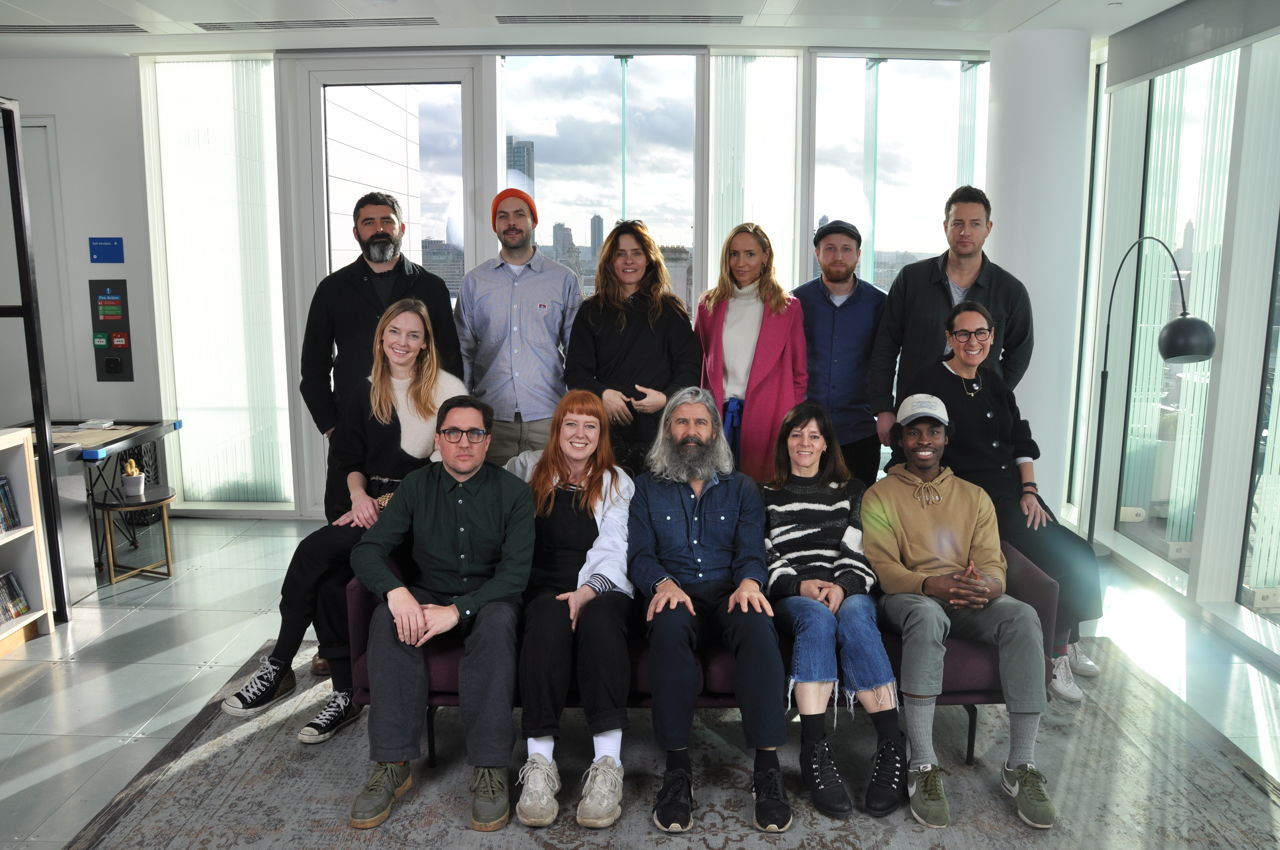
Above: The Agency/Production Craft jury.
What was the standard of entries like across this year?
HW: I think it was quite a tough year for our industry. There was quite a lot of uncertainty and maybe that made people a little more cautious with budgets and briefs, and how they were spending money. That said, there are some great pieces of work in there.
I don’t think it’s going to be one of those years where one piece storms the whole thing.
MF: If you look over the last two years with Viva La Vulva and Nike’s Londoner, they’re so standout that you think they’ve been great years, but you forget everything else, so if there’s one huge [piece of work] you think it’s a good year, when that’s not always the case
HW: I mean, we can’t give too much away, but I think, looking at everything, there’ll be a nice mixture of different things. I don’t think it’s going to be one of those years where one piece storms the whole thing. But I think that’s a good thing and means lots of people were awarded in lots of different categories for lots of different reasons.
There was quite a lot of uncertainty and maybe that made people a little more cautious with budgets and briefs, and how they were spending money.
MF: Yes, but saying that, there were a couple of craft areas, like editing and video effects, I just thought were of a very high standard.
What did you find the most challenging aspect of being one of this year’s jury chairs?
HW: Choosing the jury.
MF: One of the challenges was just to get people to come out and say what they think. Or, if I thought there was something up there that people didn’t recognise, then my job was to go, ‘Well what about this?’.
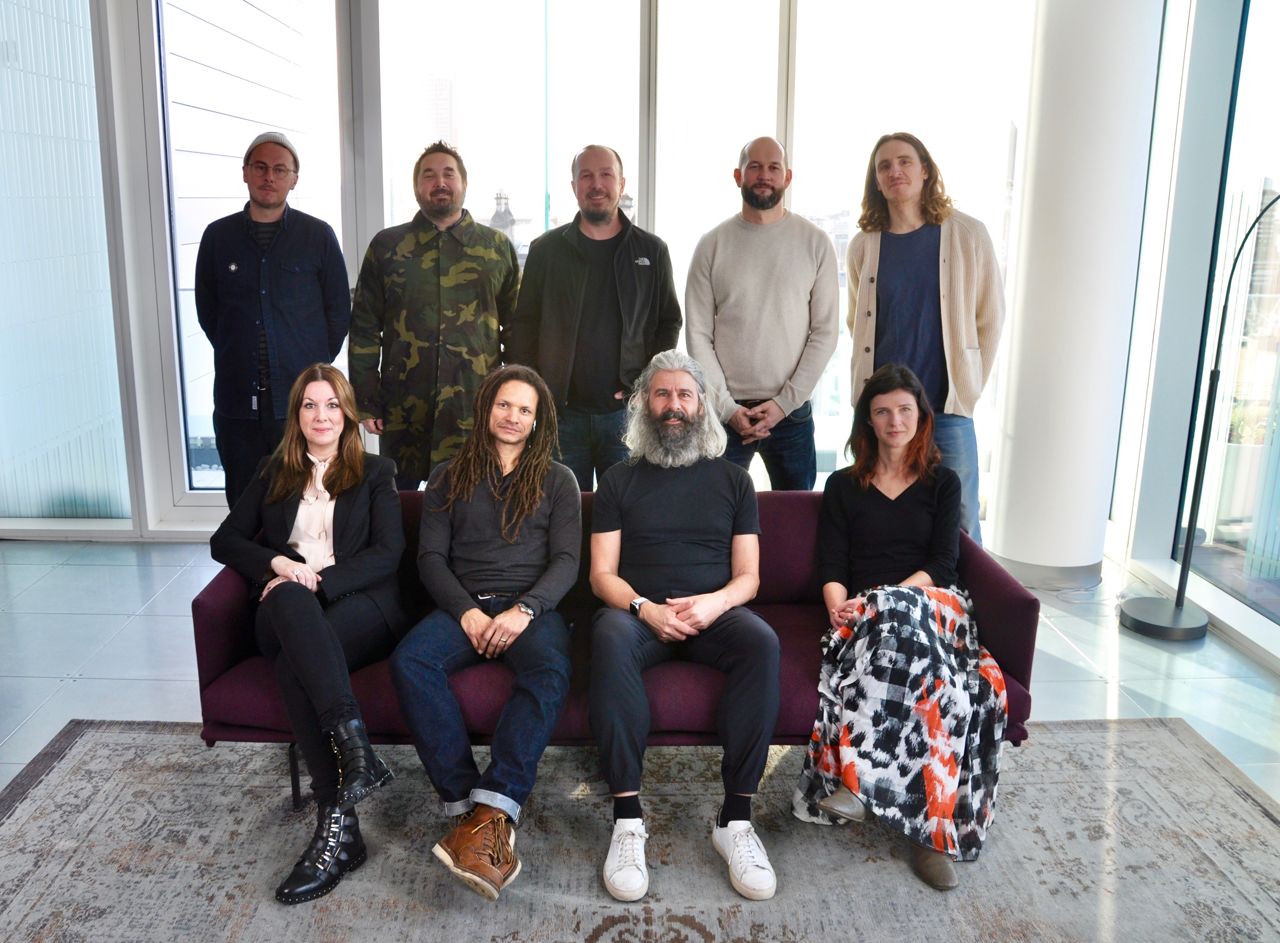
Above: The Post Craft jury.
What are you looking forward to most about the night itself?
MF: What I’ve always loved about the British Arrows is meeting people, and I think what they’ve done recently, which is good, is shorten the actual event to allow more time for meeting and talking. You can actually mix, mingle and see old friends and colleagues, and just really pull together as a crowd.
It’s a great snapshot of where we are creatively, of what’s going on.
HW: I think, when you see all of that work together, back-to-back for an hour and a half, it is going to feel like a proper celebration of a hard year’s work. There’s some really great stuff out there.
How important for the industry are awards shows like the Arrows?
HW: I think it’s a really good thing to have the Arrows. It’s a great snapshot of where we are creatively, of what’s going on. It’s a really quick way to be able to look at what everyone’s been up to and say, ‘okay, here’s where the bar is’. Then we can aim to smash it or stand back and say, ‘wow, that bar’s really high this year’. Awards like the Arrows just encourage everyone to keep doing better, braver work each year.
What the British Arrows celebrates and highlights is the realisation that good work is based around like-minded, talented people.
MF: I once heard someone say that celebrating great work and putting it on a pedestal will give agencies and clients more confidence to be braver, but I am not 100% sure this really happens. Invariably, people just want either the accolades or the success of the commercial, so end up making a copy of the style [of winning work]. What the British Arrows celebrates and highlights is the realisation that good work is based around like-minded, talented people, not just from a production point of view but from a client and agency point of view as well.
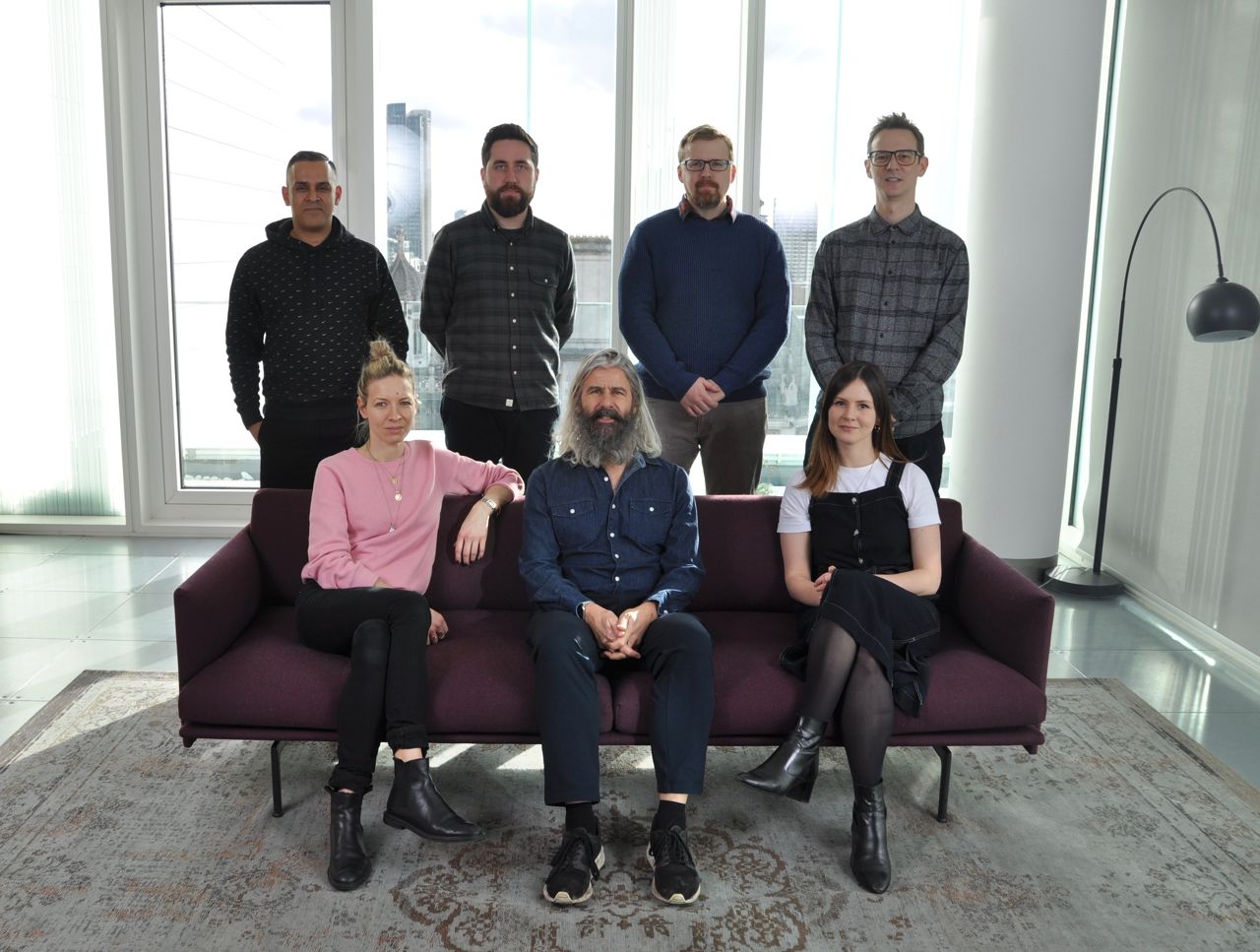
Above: The Audio Craft jury.
What did you enjoy most during your tenure as jury chairs?
MF: What I got out of it, as I suppose I do every year, juror or not, is the realisation that everybody is trying to make a brilliant piece of work. Trying to make everything better; whether it’s a client or an agency or a director, everybody’s trying to make the best thing they can. The quality [of work this year] was great but it’s still surprising that you can get so much good work out when you’ve got so many committees making stuff. It’s a testament to the type of people involved, whether it’s an agency or a client or a production company or whoever, that you can still navigate a very, very difficult, process and get to something great.
The quality [of work this year] was great but it’s still surprising that you can get so much good work out when you’ve got so many committees making stuff.
HW: I mean, yes, what he said. It was a real privilege [to be jury chair], really enjoyable, really interesting, but I think the main thing was just sitting in a room with 25 people, some of whom are new to the industry, but others who’ve been doing it for 20-plus years and are still willing to give up their time to sit in a room watching ads for three days and still get really excited about brilliant ideas and amazing craft.
)

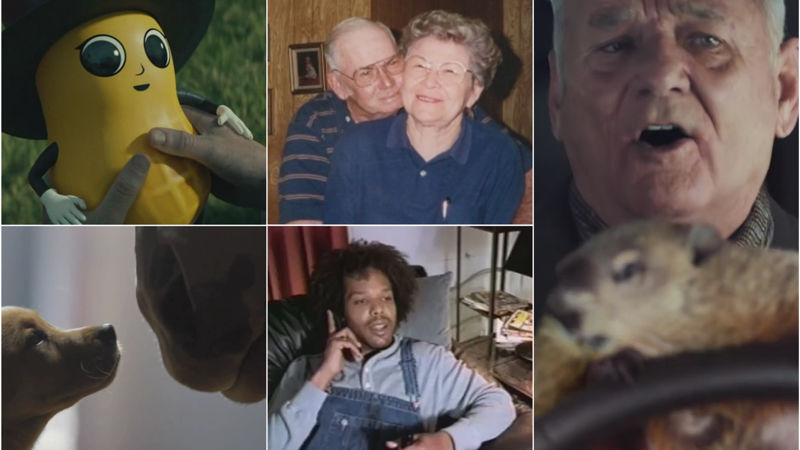


 + membership
+ membership











